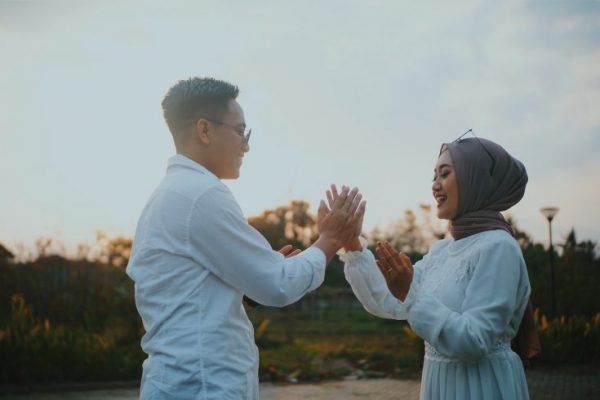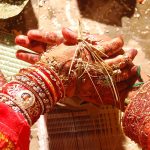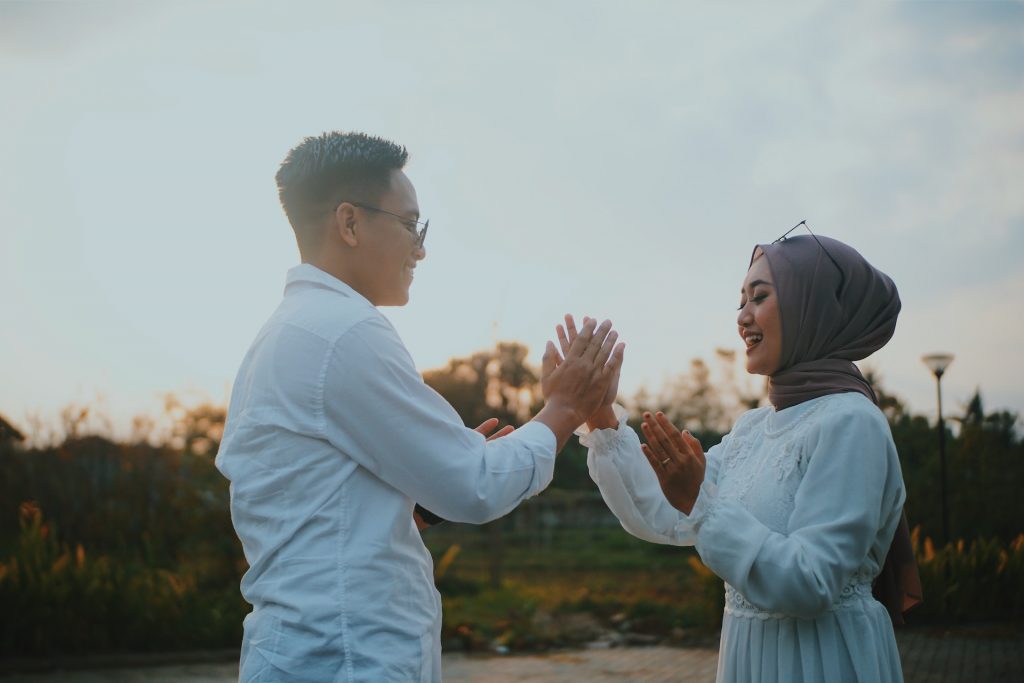
Indonesia has a large number of native ethnic groups and the Indonesian archipelago is home to over 17,000 islands. With such a diverse population, Indonesian weddings are a burst of culture and customs. From Bali, Sumatra, Sulawesi to Lombok, each group has their unique wedding traditions. For more information about traditional Indonesian wedding traditions, read this article.
Indonesian Wedding Traditions
Indonesian weddings are vibrant and colourful and the Indonesian people love to celebrate the event. Here are the basic instructions regarding Indonesian weddings.
Invitations and Plus-One: Invitations come in all forms in Indonesia. You may receive one via printed, verbal, SM or email. Guests even bring uninvited friends to the wedding.
Attire: Guests wear formal, traditional clothes to Indonesian weddings. Each ethnic group prefer their unique wedding dress like batik, traditional textiles, kebaya, etc. You can wear Western-style clothes as well.
Gifts: In the absence of a gift registry, guests give cash to the couple. The average amount is Rp. 300,000 to Rp. 500,000 and the families keep track of who is giving how much. Guests receive wedding favours at the wedding reception.
Alcohol: The families don’t serve alcohol at an Indonesian Muslim wedding.
Indonesian Nikah Weddings
Indonesia is predominantly a Muslim country; it has diverse cultural customs and traditions according to each island.
Considerations: A Muslim man asks for consideration from his close relatives. The relatives give the groom valuable advice about marriage and religion. A Muslim woman, after receiving a proposal, asks for consideration from her relatives and gets advice about religion and marriage.
Sholat Istikharah: The woman and man perform Sholat Istikharah to make the best decision. The couple asks Allah to pick what is right and what should be done.
Khitbah: The next step is Khitbah which means proposal in Arabic. The groom asks permission from the bride’s parents and family. If the bride and her parents say yes, the wedding preparations start.
Engagement: The bride and groom get engaged as the proposal is accepted. The couple’s families exchange gifts.
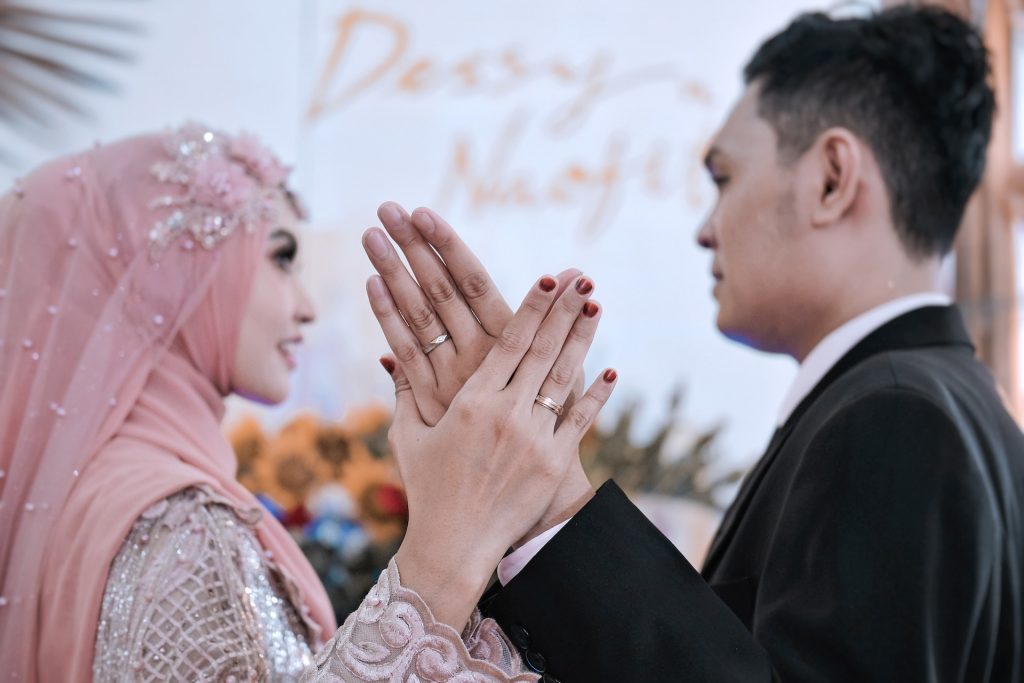
Ijab Qabul: This is the Islamic marriage contract which is an important part of the Indonesian nikah ceremony. The bride and groom agree to the marriage; an Islamic wedding needs witnesses to be valid.
Walimah: The families host the marriage banquet, an Islamic wedding ritual. Family members and friends attend the Walimah; enjoy a delicious Indonesian meal.
Javanese Wedding
Javanese weddings commence with a formal meeting and agreement between the couple’s families. They set a date, choose the budget, and divide up wedding tasks between the two families.
Siraman: The wedding festivities begin with the Siraman ceremony. The couple’s parents shower the couple with a water-and flower-based mixture of rose petals and jasmine.
Next, the bride dresses up as a princess and, accompanied by her female relatives and sometimes even from the groom’s side, the bride stays in her assigned room for the whole night. The groom waits outside the bride’s home to show that he will be a patient and loving husband.
Civil Wedding: The couple signs the wedding documents to legalise their marriage. The couple completes the wedding rituals, including throwing betel nut leaves at each other to ward off evil spirits.
Sungkeman: The couple seeks blessings from their parents and family elders.
Wedding Reception: The couple eats their first meal as a married couple. Guests eat a delicious meal, enjoy traditional entertainment, and greet the couple.
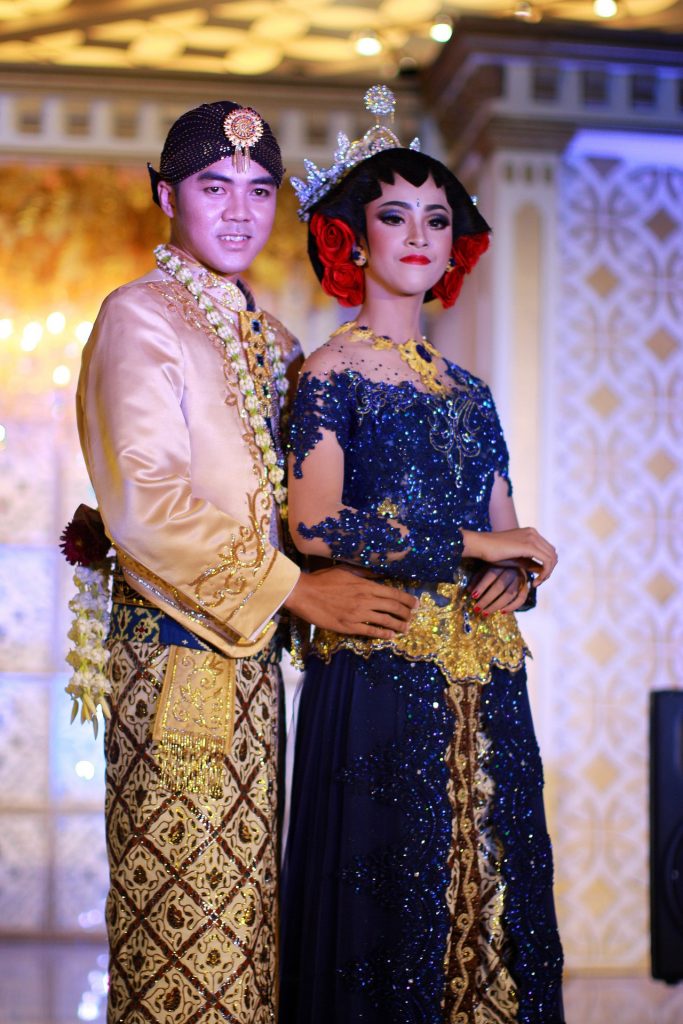
Balinese Wedding
A Balinese wedding involves several Balinese Hindu rituals; Balinese culture considers marriage sacred. Everybody in the couple’s banjar (village or community) helps in the wedding preparations.
Mesedek: The groom’s parents go to the bride’s house for introductions and marriage proposal presentations. The bride’s parents get to approve or reject the proposal.
Medewasa Ayu: The bride’s parents approve of the union; the next ritual is picking the wedding day. In Balinese Hindus culture, a wedding on an auspicious day will guarantee the marriage’s success. The Sulinggih, an expert in selecting wedding dates in Hindu culture, pick the wedding date.
Ngekeb: The bride’s family holds this ritual the day ahead of the wedding; it is symbolic of the bride going from a single woman to a wife. The bride bathes with a mixture of peacock leaves, turmeric, ylang flowers, and rice. She will remain in her room and on the morning of the wedding, the groom will come to her home to collect her.
Ngungkab Lawang: In this ceremony, the groom ‘picks up’ the bride as Ngungkab Lawang means “opening the door”. The bride wears a yellow garment for this ceremony. Upon meeting, the bride and groom recite Vedic verses and throw betel leaves to ward off evil spirits or forces.
Medagang-Dagangan: The bride and groom exchange gifts. The bride sits on coconut fibre and offers her gift to the groom. The groom tears a small bamboo mat, or tikeh dadakan, a symbol of the bride’s purity. The bride takes taro and turmeric and plants them to worship and appease the ancestral spirits. The couple cuts a thread on a dapdap tree and have a bath.
Makala-Kala: The makala-kala ceremony happens for the protection of the couple. They burn tetimpug, which is a trio of bamboo. According to Balinese beliefs, the burning of bamboo gives protection against the dangers of buthakala, which is a large and frightening figure that can disturb a happy married life.
Metegen-Tegenan and Suun-Suuman: The bride and groom walk around a sacred fire seven times with Sanskrit prayer recitations. They bring their offerings; the couple gets bound together with a belt. The groom in front and the woman behind; this is a symbol of their new life’s beginning.
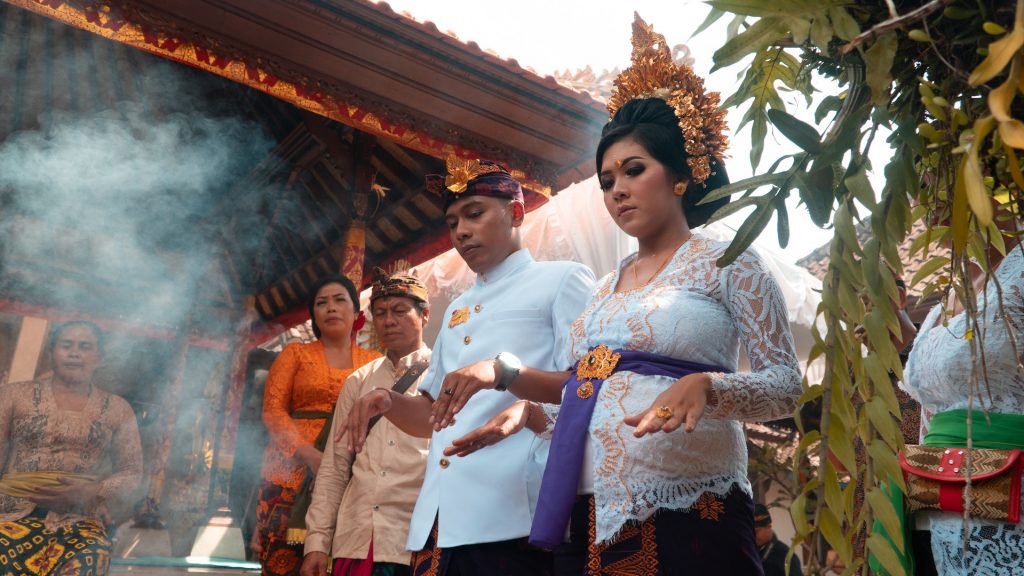
Majauman: The bridge says goodbye to her family and ancestors.
Natab Pawetonan: The groom offers gifts to the bride’s mother. The gifts are a symbol of the mother’s love for her daughter.
Tadtadan: The bride’s mother gifts jewellery and clothing to her daughter. This ritual shows a mother’s love and struggles for her daughter.
Mejaya-Jaya: The bride and groom are husband and wife legally. The bride and groom may not travel for three days and should stay at their home. This ritual increases intimacy and respect for the bride’s family.
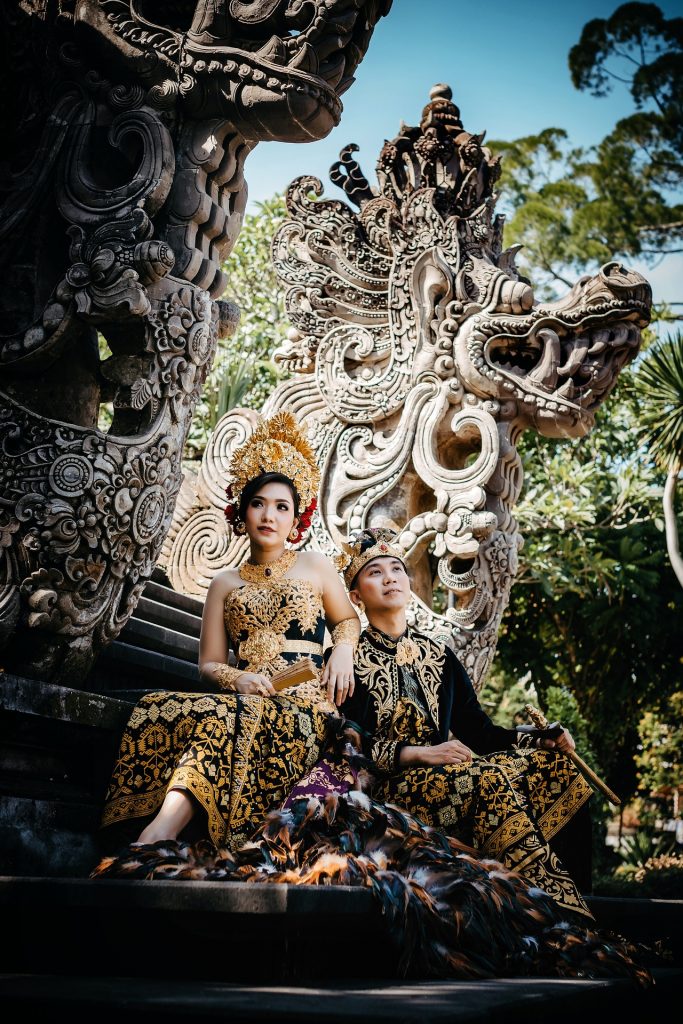
Indonesian Wedding Rituals
A wedding showcases the wonderful parts of Indonesian culture. Indonesian wedding customs differ from island to island; they express Indonesia’s long heritage.




